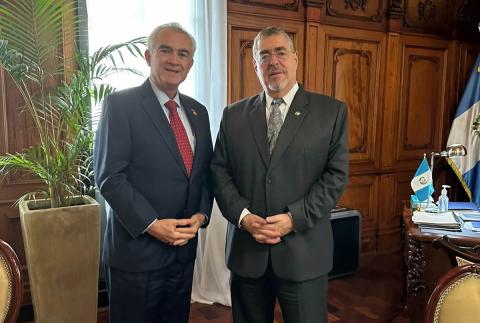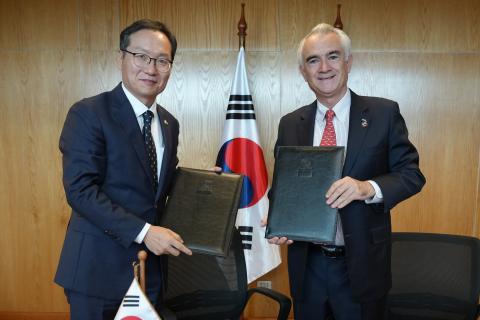Press Release
The implementation of photovoltaic projects to achieve self-sufficiency in electrical energy by companies dedicated to spinning, weaving and producing synthetic fibers and sportswear in El Salvador would have several benefits for the country, according to a recent study by the Subregional Headquarters of the Economic Commission for Latin America and the Caribbean (ECLAC) in Mexico.
The document Strategy of Electrical Energy Self-Sufficiency Among Companies in the Synthetic Fiber-Sportswear Chain in El Salvador (in Spanish) indicates that this type of initiative not only would favor business owners due to lower power bills and greater availability of supply, but it would also help reduce greenhouse gas emissions at a national level and boost the diversification of energy sources used by the Central American country.
According to the report, electricity rates for industrial consumption grew 77.2 % nominally between 2007 and 2014, making it imperative that companies seek out strategies to attenuate their impact on the cost structure of the textile production chain.
The report provides a pre-feasibility analysis that takes into consideration economic profitability and the regulatory framework applied to the Salvadoran electricity sector. The selection of companies and the necessary gathering of information were made jointly by ECLAC, El Salvador’s Ministry of Economy (MINEC) and the Chamber of the Textile Industry and Free Zones (CAMTEX).
The research concludes that projects of electrical power self-sufficiency are economically viable since they deliver a domestic rate of return on capital that varies between 13.6% and 18.4%, depending on whether they are financed with their own resources or use leverage of 70%. This means that the capital would be recouped in 7.8 years in the first case, and in 8.9 years in the second, which opens the possibility of designing strategies oriented towards the implementation of electricity generation projects fueled by renewable sources.
With respect to the regulatory framework, the document says that although El Salvador has created instruments to promote power generation projects based on renewable energy, there is still no adequate legislation for self-sufficient industrial producers with small initiatives (below 5 MW) that want to inject their electricity surplus into the grid. Therefore, it is necessary to create specific norms for non-conventional renewable energies that include this kind of producer, the study stresses.



